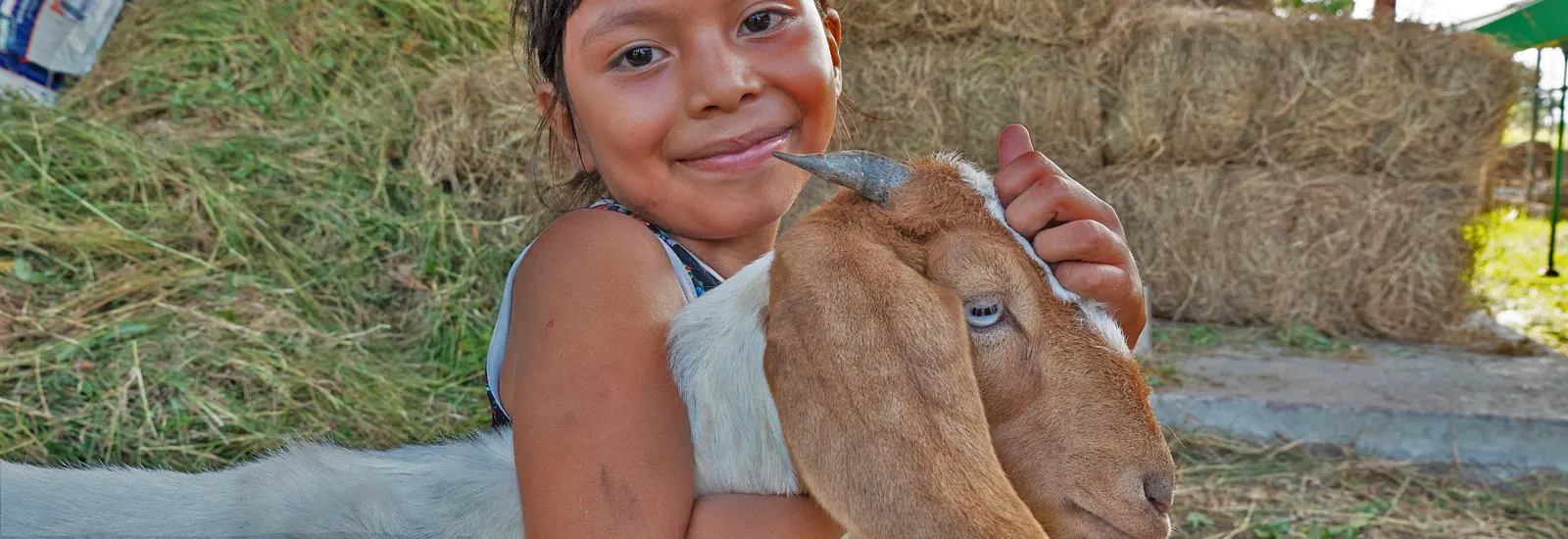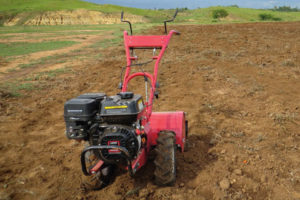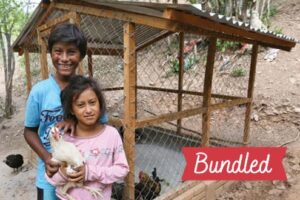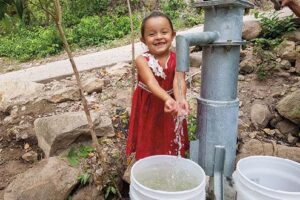Description
Owning a goat can provide numerous benefits to a family living in poor rural or resource-constrained areas. Goats are considered valuable livestock for small-scale farmers and can have a positive impact on various aspects of the family’s livelihood including nutrition, income generation, asset accumulation, diversification of livelihoods, fertilizer production, and sustainable livestock management.
Nutrition & income generation
Goat milk and meat are nutritious foods. Goat milk is rich in protein, calcium, and vitamins, which improves the family’s nutritional intake of children and breastfeeding mothers. Families can sell excess goat milk, young goats, and goat meat in local markets. This steady income can be used to purchase other essential items such as clothing and medicine.
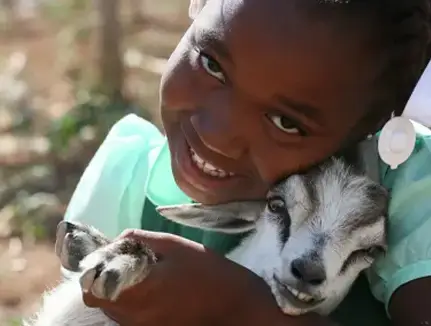
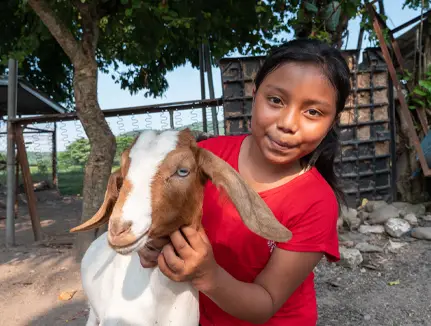
Asset accumulation & diversification of livelihoods
Goats are low-maintenance animals compared to larger livestock, making them suitable for resource-constrained families. As the goat herd grows, the family’s wealth increases, and they have the option to keep or sell goats as needed. Goat rearing diversifies the family’s livelihood options, reducing their dependency on a single source of income, such as crop farming.
Treating malnutrition
We use goat milk as part of a strategy to treat malnutrition. We combine this approach with broader efforts to address the underlying causes of malnutrition, such as improving access to a diverse and nutritious diet, clean water, healthcare, and education. Implementing community-based nutrition programs, providing training to families on goat management and milk utilization enhances the overall impact of using goat milk to combat malnutrition.
Help Avert a Humanitarian Crisis
Haiti Needs Urgent Assistance
In recent days, a surge of violence in Haiti has forced at least 360,000 people out of their homes. Food For The Poor’s distribution centers need more resources to serve the 4 million people who are now facing acute food insecurity. Help us restock and ship more containers to respond to the immediate crisis and prepare the recovery efforts to help internally displaced families return home.

